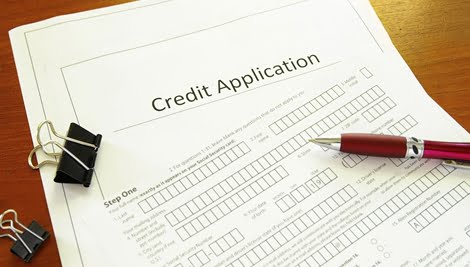If you are recovering from a bad credit event, such as a consumer proposal or personal bankruptcy, you should make every effort to restore some lustre to that damaged credit history.
A good way to get started would be by opening two new credit facilities and using them vigorously.
It’s not hard to spot a past bankruptcy with a casual glance at a client’s credit report. Many will have a low-limit Home Trust Secured Visa or Capital One Mastercard.
For a while, Peoples Trust offered its Affirm Mastercard, but now Refresh Financial and others are trying to fill the void left when they exited the space a couple of years back.
 Can you ask your bank for a secured credit card?
Can you ask your bank for a secured credit card?
Most bank staff do not promote secured credit cards, and in some cases aren’t even aware they can offer such a product. But they do, and it’s often there for the asking.
Typically, they use them for consumers with no previous credit history, although they can make an exception for others.
Be honest and explain how important your personal credit history is to you, and that you are embarking on a project to rebuild it and are willing to put up collateral to get their card.
If approved, your money will likely be invested in a term deposit or GIC.
Why is this a good idea?
Down the road as your credit bruises heal, you will be left with whatever credit facilities you put in place following the bad credit event.
Mortgage lenders and automobile finance companies will place more weight on a $2,000 visa card from a major chartered bank than they will from one of the lesser card issuers.
And after a couple of years, the banks return your security deposit and life carries on.
With other secured credit cards, it’s extremely unlikely that will happen until you actually close the card. But when you close the card you lose all the goodwill and history you worked so hard to develop.
I recall advising a client to take a $5,000 secured Visa from TD Bank four years after he completed his personal bankruptcy. Two years later, all mention of his bankruptcy had fallen off his credit report. He was in the branch one day and asked if they could return his security deposit. Not only did they return the deposit, they increased his limit that same day to $18,300!
Re-established credit size matters
We have all come across clients who proudly point to their $300 Capital One Mastercard as evidence they have re-established and rebuilt their personal credit history.
Occasionally, they don’t even use it and they think just having it is enough.
As a mortgage lender, how excited would you be to lend $400,000 to someone who brings a $300 credit card to the meeting? Not very.
 How to Add ‘Oomph’ to Your Credit
How to Add ‘Oomph’ to Your Credit
Increase your limit whenever you can.
Some cards, such as the Home Trust Secured Visa, allow you to start with as little as $500. If money is tight, then do that, rather than wait till you have more money to cover a larger credit limit. It’s a dollar-for-dollar arrangement.
As time goes on, you can request a larger limit for the same card. You could go years with a $500 limit, and a month or two prior to applying for a high-ratio mortgage, contact your card issuer and say you need a larger spending limit. Offer up at least $2,000—the more the better.
You will have to put up more money on deposit, but when your personal credit is checked later, it can appear that you have had the larger limit card since the day you first got the $500 starter card.
Capital One’s Secured Mastercard operates differently. Most of the time, the security deposit is either $75 or $300, regardless of the actual limit you’re given.
I have helped hundreds of people apply for this card, and yet I still cannot predict the limit they might be approved for. Sometimes it is shockingly large, given the consumer’s appalling credit history. Other times, it is a puny $300 or so.
 Tips to get your card issuer to love you and increase your limit:
Tips to get your card issuer to love you and increase your limit:
- Use the card very frequently
- Never, ever go over the limit, no matter how small the limit
- Practise good credit hygiene and never, ever allow your statement balance to be higher than 20% to 30% of your limit. Ideally, your statement balance should be close to zero
- Get in the habit of making at least two, if not several, payments each month from your online banking. Suppose you want to use your $300 card for all your gasoline and grocery purchases. You might need to cycle through your card limit four or five times each month
The card issuer’s computer scoring algorithms will recognize your stellar use of their credit card, and in most cases, you will enjoy credit limit increase offers every year or two. These tips work well for pretty much any card issuer.
And don’t bother asking Capital One to increase your limit. They do it when they want to, not when you ask, unlike regular credit cards.
How much new credit do you need?
The more new credit the better, is my opinion. But emphasis is on the word new.
Some people hang onto a credit card or two, even while they file and pay off a consumer proposal. And many have a monthly car or student loan payment. Or even a mortgage and a cell phone bill.
Yes, these are all good for the overall health of your personal credit history, but will not carry much weight if you are looking to apply for a mortgage anytime soon.
Mortgage lenders love to see new credit. Credit that was taken on after the life-changing bad credit event you got hit with.
So, do your best to arrange two new facilities as soon as you can. Even if your bank says no to a secured credit card, Capital One will often be a great place to start.
Use the new card well for a few months, allow it to generate credit points for you, and then you can always look to Canadian Tire Mastercard for a second card, if nothing else comes up.
Some people are gun-shy and want no part of new credit cards. But you must see past that and recognize how hard it is to flourish in Canadian society without a decent credit history.
– by Ross Taylor
 While a home purchase agreement may seem simple and straight forward, there are many differences that you can encounter that can be a big surprise to first-time homebuyers. While you expect the date of possession and the full purchase price to be outlined in the agreement, there are items that you may not be aware should be included.
While a home purchase agreement may seem simple and straight forward, there are many differences that you can encounter that can be a big surprise to first-time homebuyers. While you expect the date of possession and the full purchase price to be outlined in the agreement, there are items that you may not be aware should be included.





 Can you ask your bank for a secured credit card?
Can you ask your bank for a secured credit card? How to Add ‘Oomph’ to Your Credit
How to Add ‘Oomph’ to Your Credit Tips to get your card issuer to love you and increase your limit:
Tips to get your card issuer to love you and increase your limit: